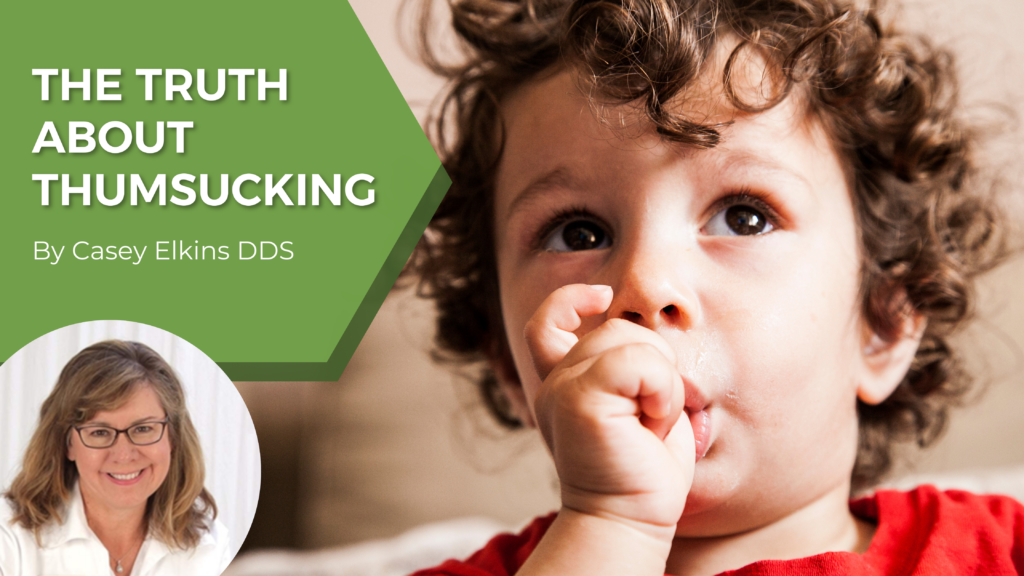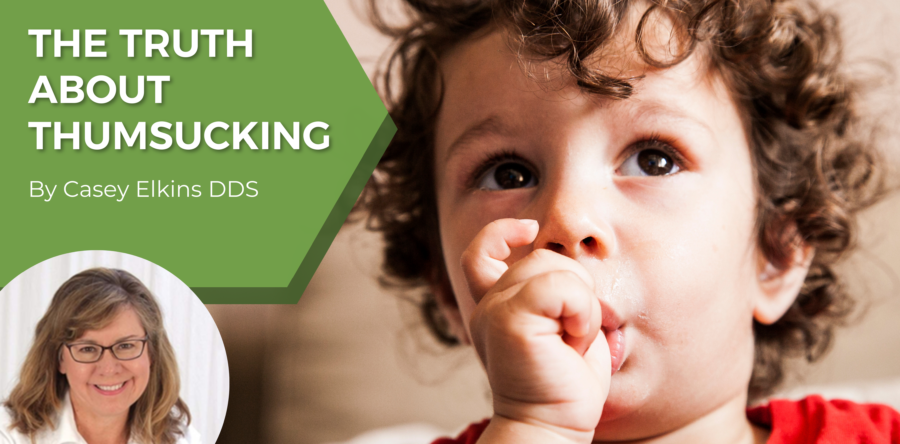
“Aww, isn’t that cute,” isn’t normally the reaction most bad habits get. However, thumb sucking is another story! The truth is, it has a valid existence as a habit, especially for younger children who need some efficient self-soothing. As they grow older, this is a habit they definitely need to break in order to maintain good oral hygiene and a healthy smile!
Don’t worry Mom, it’s natural!
Thumbsucking is a self-soothing, natural reflex in children. Some children boycott it on their own by sucking on one of their other fingers, pacifiers, or even other objects instead. This habit actually puts the child more at ease, much like a security blanket, allowing them to learn more about the world that surrounds them. This is also a common way many children soothe their anxiety at night, helping them drift quickly to sleep!
Not all solutions are permanent ones.
While thumbsucking is a natural reflex that aids small children, it’s not a good habit to keep beyond a certain age! This habit often develops at a very young age, sometimes even while the child is still in the womb. Some children stop sucking their thumb completely on their own between 2 and 4 years old, however, a good number of kids have to be weaned out of this habit. Dentists recommend that children stop sucking their thumb by 7 years old, this often prevents the habit from damaging the child’s adult bite.
Is that bad for my child’s teeth?
Some parents are hesitant to wean their children away from their clearly effective self-soothing habit. However, long-term this habit can lead to a variety of dental issues for children, including alignment of teeth, improper mouth growth and even altering the roof of the child’s mouth over time. Pacifiers have the ability to inflict similar results but have proven to be an easier habit to break for children. How your child sucks their thumb can affect the type of oral damage the habit can cause as well. Children who passively suck their thumb often experience less damaging results than those who do so more aggressively. Aggressive thumbsucking is also known to cause sores, calluses, and in some cases even open wounds on the child’s thumb.
This habit can increase the risk of other health issues.
Hand sanitizer, wet wipes, and antibacterial soap are a large part of every parents’ arsenal against germs! This relentless war on microscopic germs is something every parent faces having an active, curious child. However, thumbsuckers run a much higher risk of coming in close contact with these germs! We all know that little ones often aren’t conscious of all the microorganisms that they come in contact with every day. So it’s no wonder that they have no hesitation to touch everything around them, only to shove their thumb in their mouth moments later. This can be a big problem for children who have less effective immune systems, leading to issues such as Oral Systemic diseases.
How can I get my child to stop sucking?
Many children have picked up this habit, a good number have a hard time letting it go. Here are a few things you can do to help break your child’s thumbsucking habit…
- Positive affirmation and praise can give your little one the encouragement it takes to quit!
- For most children, the habit is developed to soothe the child! Discover the source of the anxiety and find new productive alternatives to bring comfort to your child.
- Ask your dentists for tips and tricks, they always have a few up their sleeves!
We all develop bad habits throughout our lives, even as small children. Thumbsucking being one of the most notorious ones, can also cost your family in dental work later on. Know when it’s time to gently wean your child out of the habit, this is a great learning opportunity for children on dealing with stress and even anxiety productively on their own. We know that this can be a difficult habit to break, that’s why we want to offer all the support we can to our patients’ parents! If you are interested in more ways to break the habit, feel free to contact us!


